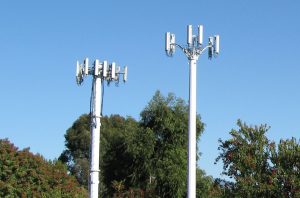This article briefly describes how Unrelated Business Income Tax (UBIT) affects churches, although much of what follows generally applies to all tax-exempt organization.
Defined:
According to the IRS, Unrelated Business Income is income from a trade or business, regularly carried on, that is not substantially related to the exempt purpose that is the basis of the organization’s exemption. An exempt organization that has $1,000 or more of gross income from an unrelated business must file with the IRS and must pay estimated tax if it expects its tax for the year to be $500 or more.
The term “trade or business” generally includes any activity conducted for the production of income from selling goods or performing services. An activity does not lose its identity as a trade or business merely because it is conducted within a larger group of similar activities that may or may not be related to the exempt purposes of the organization.
Business activities of an exempt organization ordinarily are considered regularly carried on if they show a frequency and continuity, and are pursued in a manner similar to comparable commercial activities of a nonexempt organization. A business activity is not substantially related to an organization’s exempt purpose if it does not contribute importantly to accomplishing that purpose (than through the production of funds). Whether an activity contributes importantly depends in each case on the facts involved.
In determining whether activities are not substantially related to the exempt purpose, the size and extent of the activities involved must be considered in relation to the nature and extent of the exempt function that they intend to serve. For example, to the extent an activity is conducted on a scale larger than is reasonably necessary to perform an exempt purpose, it does not contribute importantly to the accomplishment of the exempt purpose. The part of the activity that is more than needed to accomplish the exempt purpose is an unrelated trade or business.
If a facility necessary to the conduct of exempt functions is also used in commercial activities its use for exempt functions does not, by itself, make the commercial activities a related trade business. The test, as discussed earlier, is whether the activities contribute importantly to the accomplishment of exempt purposes
Church Rentals:
Although income received from the rental of real property is generally not considered to be UBIT, there are several exceptions to this rule. Of primary importance is when property is rented to other organizations which it is debt-financed, the rental income may well be taxable. In other words, if a church specifically borrows funds to acquire income-producing property, the income received from the rental of that property would be taxable in proportion to the indebtedness. So as the debt is reduced, so is the UBIT liability. However, if at least 85% of the property is used for purposes that substantially relate to the organizations’ own exempt purposes, income received from rents would not be taxable. Furthermore, there would be no tax liability where the exempt organization receives interim rent income from additional property purchased in the neighborhood of its own facilities provided it plans to use that additional property for its exempt purposes within ten (10) years.
In addition to the rental income received from real property, if the organization also rents its personal property in addition thereto, there may also be UBIT liability unless the amount of rent attributable to the personal property is no more than ten (10%) percent of the total rent from all the property leased.
It is important to remember that the exempt organization can provide normal maintenance services and not be subject to UBIT liability if the services provided are not primarily for the convenience of the tenant.
Thrift Shops:
A trade or business that consists of selling merchandise, substantially all of which the organization received as gifts or contributions, is not an unrelated trade or business. For example, a thrift shop operated by a tax-exempt organization that sells donated clothes and books to the general public, with the proceeds going to the exempt organization, is not an unrelated trade or business.
Bingo:
The term unrelated trade or business does not include conducting bingo games, provided State and local laws permit the playing of the game. In addition, the local where the game is played may not be in the same jurisdiction where for-profits also conduct the game such as a casino.
Please see our other related articles
Must a Church Apply for Tax-Exempt Status
Cell Tower’s at Churches
Church Officer and Director Liability
The Harm in Renting Out the Church Parsonage
Disclaimer: Every situation is different and particular facts may vary thereby changing or altering a possible course of action or conclusion. The information contained herein is intended to be general in nature as laws vary between federal, state, counties, and municipalities and therefore may not apply to any given matter. This information is not intended to be legal advice or relied upon as a legal opinion, course of action, accounting, tax or other professional service. You should consult the proper legal or professional advisor knowledgeable in the area that pertains to your particular situation.

